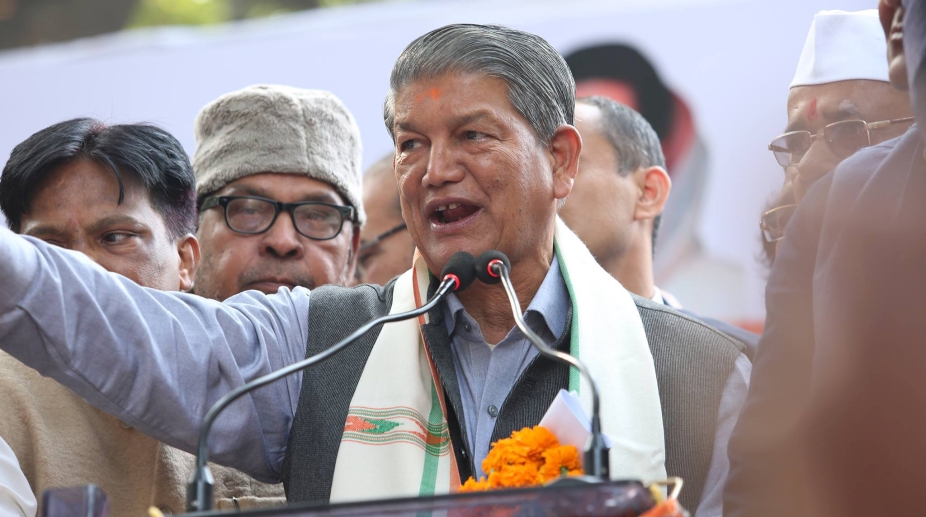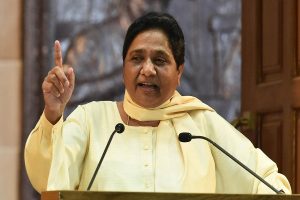Resentment is building up within the BJP over the unprecedented number of rebels from other parties who have been given tickets both in Uttar Pradesh and in Uttarakhand. Although officially, the Uttarakhand unit of the BJP has welcomed the nominees’ list released a couple of days ago, party insiders say that the decision to accommodate so many rebels has not gone down well with loyalists and old-timers who have served the party for decades.
In Uttarakhand, all Congress rebels who joined the BJP last year when the saffron party made an aborted bid to bring down the Harish Rawat government have got tickets themselves or for their sons/daughters. The unkindest cut was the high command’s last-minute decision to nominate three Congress rebels who joined just a few hours before the list was released. Two of these three are the father and son duo of Yashpal and Sanjeev Arya. Both will contest on the lotus symbol. This is Sanjeev’s first ever election, which is causing much heartburn among BJP workers who have waited for years to get a nomination.
Advertisement
The UP list too is dominated by turncoats from Congress, SP and BSP. The entry of one rebel in particular, Amarpal Sharma, has caused major tension. Sharma was the BSP MLA from Sahibabad, a seat that home minister Rajnath Singh has been eyeing for his son, Pankaj. The MLA quit the BSP just the day before the selection committee met to finalise the list of nominees and naturally demanded that he be re-nominated for the Sahibabad seat.
Imagine the fury of Rajnath and son Pankaj who had staked a claim for that seat many months ago. Efforts are on to persuade one of them, either Pankaj or Amarpal, to contest from neighbouring Noida so that both can be accommodated. When last heard, the dispute had not been resolved.
It is obvious that the BJP has thrown all principles to the winds this time and chosen candidates on only one factor: ability to win. Loyalty, ideology, commitment to the BJP and experience, none of these mattered in the selection process. It only underlines how desperate the BJP is to win this round of polls. After all 2017 is expected to set the stage for 2019.
Tea, tea and me
Narendra Modi’s chaiwala background seems to have become a sort of motif for ministers and BJP leaders alike. Union ministers Rajyavardhan Rathore and Radha Mohan Singh have come up with the idea of holding chai ki chaupals in their constitutencies to spread Modi’s message of demonetization.
Rathore represents the Jaipur Rural constituency. On his recent visit, he not only organized chai ki chaupals to lecture villagers about demonetisation, he even made tea himself and served it to those who came and listened.
Radha Mohan Singh, who represents East Champaran in Bihar, was not so creative. He did not make tea himself but he outdid Rathore in the number of chai ki chaupals he organized. In one day, between 10 am and 5 pm, he held 14 meetings at roadside tea stalls where he discussed the benefits of demonetisation over cups of steaming tea with villagers.
Interestingly, these ministers later sent out photographs of their tea meets via What’s App, making sure that they reached the right persons in the PMO so that Modi gets the message.
Unwilling to serve
The trend of IAS officers refusing to serve at the Centre under the current dispensation continues. Of the 11 new joint secretaries appointed recently, only four are from the IAS. The rest are from more junior services in the bureaucratic hierarchy like the Indian Ordnance Factory Service and Indian Defence Accounts Service.
At least four officers from these services have replaced IAS officials who wanted to go back to their cadre states. While there is no written rule that joint secretaries at the centre must be IAS officers, the fact is that officers from other services do not necessarily have the richness and breadth of administrative experience to handle macro policy decisions that are required to be taken by union ministries.
According to bureaucratic sources, more and more IAS officers want to return to their state cadre because they feel their autonomy is being curtailed by a highly centralised form of governance in which an oversized PMO issues daily directions to the ministries.
As it happens, the trend suits the current regime. The PMO is happy not to have to deal with snooty, arrogant IAS officers who believe they are the Brahmins of the Indian bureaucracy. Officers from smaller services tend to be more pliant and rarely challenge the authority of the PMO.
Right note
Arvind Kejriwal and his AAP government in Delhi seem to have started off on the right note with newly appointed Lt Governor Anil Baijal. They did something they never did with the previous LG Najib Jung. They invited Baijal to share the dais with Kejriwal at a public function.
The occasion was the inauguration of a skill development centre at a night shelter. Baijal and Kejriwal sat on the stage together and the CM stood by respectfully as Baijal completed the inauguration formalities.
This was a scene never seen during Jung’s tenure which was marked by an ugly and protracted battle for supremacy. It seems Kejriwal and his Delhi team now feels in hindsight that a lot of the tension with the LG’s office was deliberately created by Jung and his team. AAP is hoping that the Kejriwal government can establish some kind of a working relationship with the new LG who doesn’t come with the same baggage of insecurity as Jung. The previous LG was, after all, a UPA appointee.











